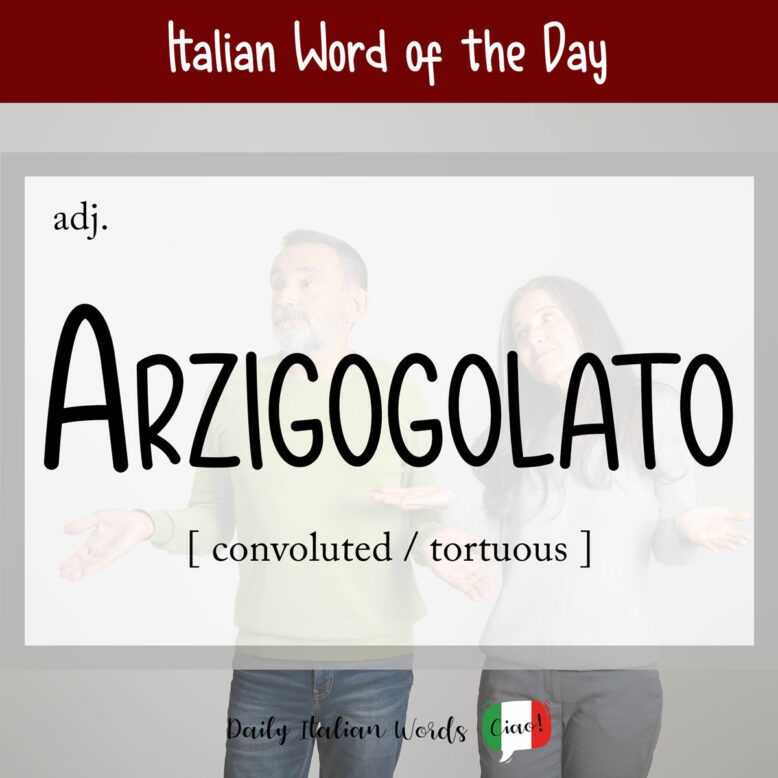Have you ever had to endure a lengthy and convoluted explanation or discussion that left you feeling more confused than when you started? If so, you could aptly describe it with an adjective that’s just as much of a mouthful as the discourse it depicts: arzigogolato.

Arzigogolato is an adjective that derives from the verb arzigogolare, meaning “to elaborate / daydream / go off tangent,” which in turn comes from the noun arzigogolo (“beating around the bush / a roundabout expression“).
The term arzigogolo likely evolved from the earlier arzagogo, which meant ‘foreign or strange‘ in the late 14th century. It is probably connected to “Gog,” a mythical land mentioned in the Bible along with Magog.
Il discorso del professore era così arzigogolato che persino gli studenti più attenti fecero fatica a seguirlo.
The professor’s speech was so convoluted that even the most attentive students struggled to follow it.

Since it is an adjective, its ending changes depending on the gender and number of the subject:
- il discorso arzigogolato = the convoluted speech
- la poesia arzigogolata = the convoluted poem
- i discorsi arzigogolati = the convoluted speeches
- le poesie arzigogolate = the convoluted poems
Heather Broster is a graduate with honours in linguistics from the University of Western Ontario. She is an aspiring polyglot, proficient in English and Italian, as well as Japanese, Welsh, and French to varying degrees of fluency. Originally from Toronto, Heather has resided in various countries, notably Italy for a period of six years. Her primary focus lies in the fields of language acquisition, education, and bilingual instruction.


